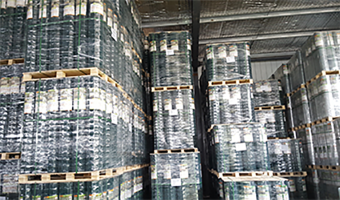-
Email:zhao@hyliec.cn
-
Tel:+86 311 85273988
-
WhatsAPP:8613931128750
-
 Afrikaans
Afrikaans -
 Albanian
Albanian -
 Amharic
Amharic -
 Arabic
Arabic -
 Armenian
Armenian -
 Azerbaijani
Azerbaijani -
 Basque
Basque -
 Belarusian
Belarusian -
 Bengali
Bengali -
 Bosnian
Bosnian -
 Bulgarian
Bulgarian -
 Catalan
Catalan -
 Cebuano
Cebuano -
 Corsican
Corsican -
 Croatian
Croatian -
 Czech
Czech -
 Danish
Danish -
 Dutch
Dutch -
 English
English -
 Esperanto
Esperanto -
 Estonian
Estonian -
 Finnish
Finnish -
 French
French -
 Frisian
Frisian -
 Galician
Galician -
 Georgian
Georgian -
 German
German -
 Greek
Greek -
 Gujarati
Gujarati -
 Haitian Creole
Haitian Creole -
 hausa
hausa -
 hawaiian
hawaiian -
 Hebrew
Hebrew -
 Hindi
Hindi -
 Miao
Miao -
 Hungarian
Hungarian -
 Icelandic
Icelandic -
 igbo
igbo -
 Indonesian
Indonesian -
 irish
irish -
 Italian
Italian -
 Japanese
Japanese -
 Javanese
Javanese -
 Kannada
Kannada -
 kazakh
kazakh -
 Khmer
Khmer -
 Rwandese
Rwandese -
 Korean
Korean -
 Kurdish
Kurdish -
 Kyrgyz
Kyrgyz -
 Lao
Lao -
 Latin
Latin -
 Latvian
Latvian -
 Lithuanian
Lithuanian -
 Luxembourgish
Luxembourgish -
 Macedonian
Macedonian -
 Malgashi
Malgashi -
 Malay
Malay -
 Malayalam
Malayalam -
 Maltese
Maltese -
 Maori
Maori -
 Marathi
Marathi -
 Mongolian
Mongolian -
 Myanmar
Myanmar -
 Nepali
Nepali -
 Norwegian
Norwegian -
 Norwegian
Norwegian -
 Occitan
Occitan -
 Pashto
Pashto -
 Persian
Persian -
 Polish
Polish -
 Portuguese
Portuguese -
 Punjabi
Punjabi -
 Romanian
Romanian -
 Russian
Russian -
 Samoan
Samoan -
 Scottish Gaelic
Scottish Gaelic -
 Serbian
Serbian -
 Sesotho
Sesotho -
 Shona
Shona -
 Sindhi
Sindhi -
 Sinhala
Sinhala -
 Slovak
Slovak -
 Slovenian
Slovenian -
 Somali
Somali -
 Spanish
Spanish -
 Sundanese
Sundanese -
 Swahili
Swahili -
 Swedish
Swedish -
 Tagalog
Tagalog -
 Tajik
Tajik -
 Tamil
Tamil -
 Tatar
Tatar -
 Telugu
Telugu -
 Thai
Thai -
 Turkish
Turkish -
 Turkmen
Turkmen -
 Ukrainian
Ukrainian -
 Urdu
Urdu -
 Uighur
Uighur -
 Uzbek
Uzbek -
 Vietnamese
Vietnamese -
 Welsh
Welsh -
 Bantu
Bantu -
 Yiddish
Yiddish -
 Yoruba
Yoruba -
 Zulu
Zulu
Essential Strategies for Effective Farm Security Fencing Solutions and Practices
Farm Security Fencing Protecting Your Investment
In the world of agriculture, securing your property and livestock is paramount. Farm security fencing serves as a critical line of defense against both animal intrusions and human trespassers. An effective fencing system not only protects valuable assets but also contributes to overall farm management and efficiency.
One of the primary functions of farm security fencing is to keep livestock contained. Animals like cattle, sheep, and goats are often susceptible to predators, as well as wandering away from their designated grazing areas. Strong, well-constructed fencing helps to prevent livestock from straying into dangerous territory, reducing the risk of accidents and ensuring that animals are kept safely on their designated pastures. Additionally, it can prevent the loss of livestock to predators, which can lead to devastating financial losses for farmers.
Moreover, farm security fencing acts as a deterrent to potential trespassers
. Farmland is often targeted for theft or vandalism, especially when crops are left unattended or equipment is stored outdoors. By erecting sturdy fences around the perimeter of a farm, the likelihood of unauthorized access decreases significantly. This not only safeguards physical assets but also protects the hard work and investment that come with operating a farm.farm security fencing

When choosing a fencing solution, several factors must be considered. The type of fencing material is crucial; options range from barbed wire and plain wire to wooden posts and electric fencing. Barbed wire is known for its cost-effectiveness and effectiveness at deterring both humans and animals. However, wooden fencing offers a more aesthetic appeal and greater durability against the elements, making it a popular choice among many farmers.
In addition to the physical characteristics of the fencing, it is essential to consider the height and design. Fencing should be high enough to prevent animals from jumping over and should be constructed to withstand the wear and tear of the natural environment. Depending on the region, farmers might also need to consider wildlife considerations; for example, in areas where deer are prevalent, a higher fence may be necessary.
Maintenance of farm security fencing is equally important. Regular inspections for damage or wear and tear can prevent small issues from becoming significant problems. Farmers should also be proactive in addressing any breaches or weaknesses in the fencing to maintain a secure property.
In conclusion, farm security fencing is an indispensable aspect of agricultural operations. By investing in quality materials and maintaining the integrity of the fencing, farmers can protect their livestock, deter intruders, and ultimately secure their livelihood. As agriculture continues to evolve and face new challenges, effective fencing will remain a cornerstone of farm security practices, ensuring that operations run smoothly and efficiently. As the saying goes, “Good fences make good neighbors” – and in farming, they make for a successful enterprise.
-
Garden Fence on a Roll: Versatile Solutions for Outdoor Enclosure and Decoration
NewsAug.22,2025
-
Fence Post Varieties: Essential Components for Durable Enclosures
NewsAug.22,2025
-
Garden Fence Panels: Blending Functionality and Aesthetic Appeal
NewsAug.22,2025
-
Tools for Fence: Essential Equipment for Garden Fence Installation and Maintenance
NewsAug.22,2025
-
Fence and Gate Accessories: Enhancing Functionality and Durability
NewsAug.22,2025
-
Metal Plant Supports: Essential Structures for Healthy Plant Growth
NewsAug.22,2025
